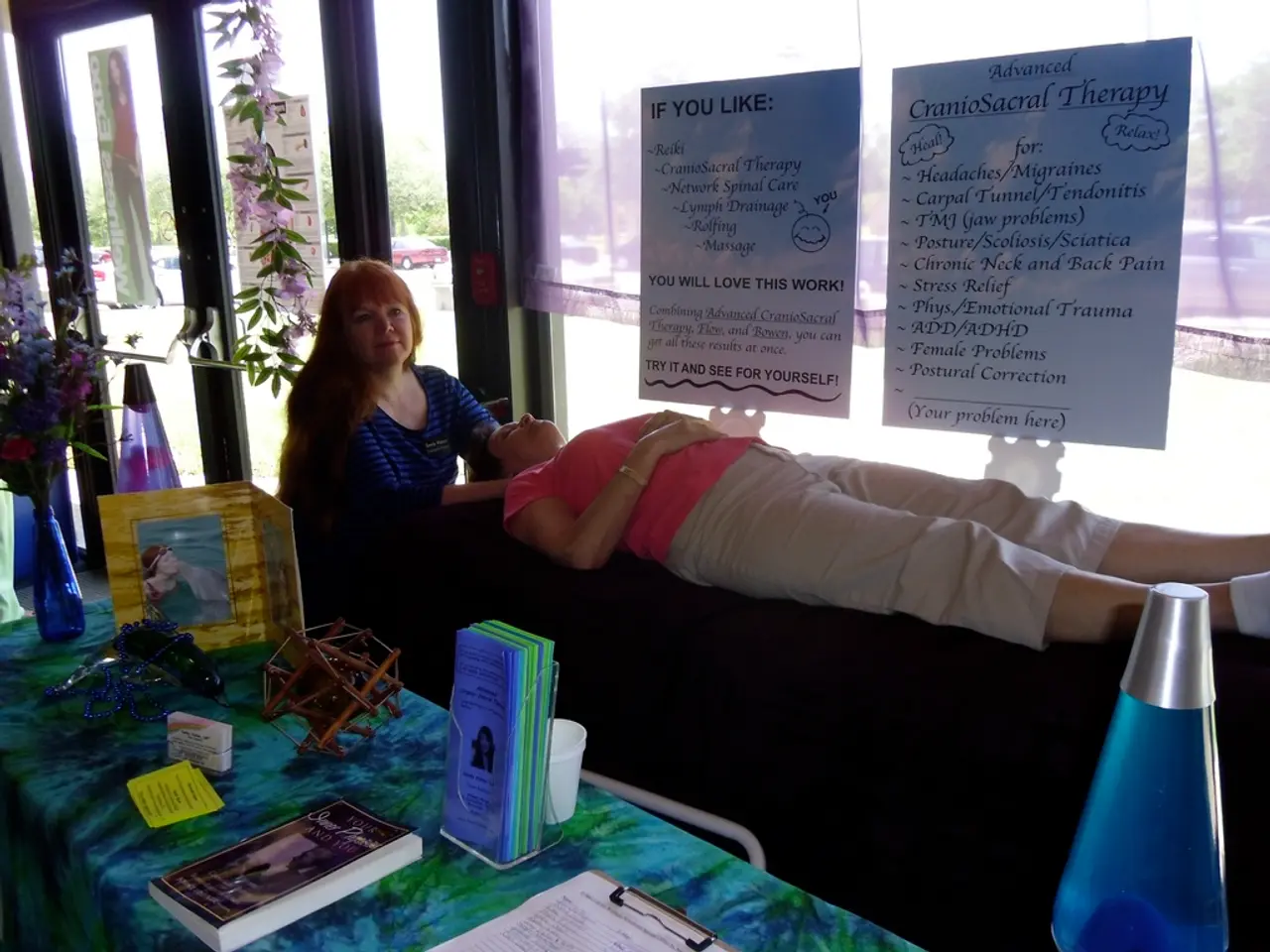Potential Hazards of Excessive Diagnoses or Personal Medical Assessments in Today's Digital Era
In the digital age, it's no secret that a vast majority of American adults turn to the internet for health-related information, with 81.5% seeking insights about mental health[1]. However, self-diagnosing mental health conditions based on online resources, particularly on social media platforms, can have significant effects and risks.
One of the primary concerns is misdiagnosis and misattribution. Self-diagnosis often leads to misidentifying or misattributing symptoms because online information may not capture the full complexity of mental health conditions, and individuals may not have the professional training to accurately diagnose themselves[1][3]. Trained professionals consider a range of factors, including history and observation, to make diagnoses, aspects that self-diagnosis may overlook[1].
Another risk is inappropriate treatment. Misdiagnosis can lead to inappropriate treatment strategies, as different mental health conditions require distinct treatment approaches, and incorrect self-diagnosis can delay or prevent proper treatment[1][3]. Self-diagnosis might also encourage self-medication without understanding prescription drug side effects, which can be harmful[3].
Beyond these direct risks, self-diagnosis can increase anxiety due to uncertainty about one's condition or the potential for misunderstanding symptoms[5]. Social media can also spread disinformation, perpetuate stigma, and deter individuals from seeking professional help[2].
However, it's essential to note that social media can increase mental health awareness and reduce stigma by facilitating discussions and providing access to information[4]. It offers a sense of belonging and community support, which is important for mental health[4]. Navigating these communities with caution, ensuring that information is reliable and that professional advice is sought when necessary, is crucial[1][2].
In summary, while self-diagnosis based on online information can raise awareness and provide a sense of community, it also poses significant risks, including misdiagnosis, inappropriate treatment, and increased anxiety. It is crucial that individuals use online resources as a starting point for seeking professional help rather than relying solely on self-diagnosis. Self-diagnosis does not replace professional and expert evaluation by a qualified, trained, and licensed professional[6].
References: [1] Pew Research Center. (2013). Americans' growing enthusiasm for online health information. Retrieved from https://www.pewresearch.org/fact-tank/2013/06/12/americans-growing-enthusiasm-for-online-health-information/ [2] American Psychological Association. (2018). Social media and mental health: What the science shows. Retrieved from https://www.apa.org/topics/social-media-mental-health [3] National Institute of Mental Health. (2020). Self-help resources. Retrieved from https://www.nimh.nih.gov/health/publications/self-help-resources/index.shtml [4] National Alliance on Mental Illness. (2021). Mental Health Awareness Month. Retrieved from https://www.nami.org/Blogs/NAMI-Blog/May-2021/Mental-Health-Awareness-Month [5] American Psychiatric Association. (2020). Mental health conditions. Retrieved from https://www.psychiatry.org/patients-families/mental-health-conditions [6] American Psychological Association. (2021). Finding help. Retrieved from https://www.apa.org/helpcenter/finding-help
- In the realm of workplace-wellness, integrating education-and-self-development programs involving fitness-and-exercise, nutrition, and skin-care could foster overall health-and-wellness, providing employees with valuable resources for maintaining their physical and mental health.
- Technology presents a unique opportunity to advance mental-health therapies-and-treatments, offering teletherapy services that allow individuals to access mental health care from the comfort of their homes, breaking down geographical barriers and stigma.
- While social media can be a source of entertainment and mental health awareness, it is crucial for individuals to critically evaluate the information they consume, ensuring it is reliable and seeking professional advice when necessary to prevent misdiagnosis and ensure proper treatment.
- The integration of technology in health-and-wellness can extend to fitness-and-exercise, as wearable devices track users' physical activity, monitor sleep patterns, and provide feedback to facilitate healthier choices and improved well-being.
- In the digital age, it is essential to prioritize mental health, recognizing that self-care practices, such as sleep, exercise, and nutrition, play a vital role in overall mental health and well-being.
- The use of online resources for learning about health-and-wellness can be beneficial, yet individuals must approach this information with caution, understanding that technology may not capture the full complexity of mental health conditions and self-diagnosis should not replace professional and expert evaluation by a qualified, trained, and licensed professional.




